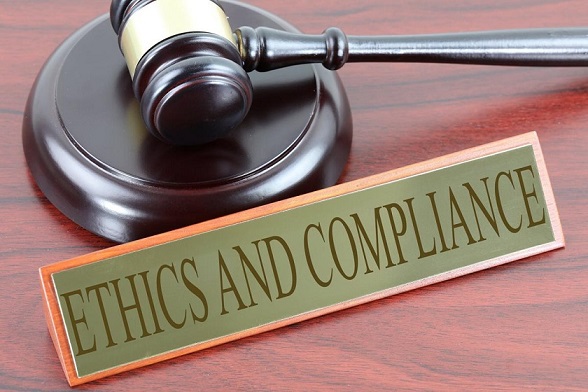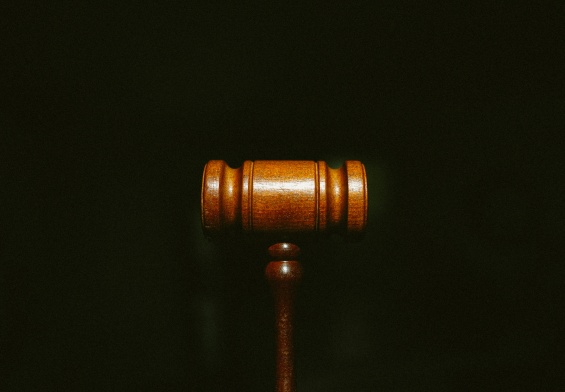Ethics Law
Within the legal profession, the term legal ethics refers to a code of conduct which oversees proper professional behavior. In order to be able to practice law, a lawyer agrees to abide by the American Bar Association’s Rules of Professional Conduct which have been adopted by the bar associations of every U.S. state with the exception of California, which uses a similar code. Essentially, ethics law stipulates the minimum standards required of judges and lawyers in their practice.
Recently, however, certain cases have shed light on the relevance and the age of the Rules of Professional Conduct. While much has changed in the legal profession over the last twenty-five years, these rules remain relatively unchanged from when they were adopted back in 1983.
Karstetter v. Kings County Corrections Guild
On July 18, 2019, the Washington State Supreme Court ruled that fired in-house counsel may sue their former employer for breach of contract and violation of public policy, regardless of an ethics rule that maintains a client’s right to discharge a lawyer at any point.
The plaintiff, a lawyer named Jared Karstetter, brought the suit against a union, the King County Corrections Guild, that was his main client. In this case, the employer contract required cause for firing. Karstetter charged that his dismissal was the result of his involvement in a whistleblower complaint he had investigated at the behest of the union’s vice president. In addition to breach of contract, Karstetter also alleged a violation of Washington’s whistleblower law. The Washington Supreme Court, which allowed the suit, found that ” “the evolution in legal practice has uniquely affected the in-house attorney employee and generated unique legal and ethical questions unlike anything contemplated by our Rules of Professional Conduct.”
Essentially, the court reasoned that in-house counsel should be treated different from private practice lawyers with regard to the ethics rules.
The guild countered that its discharge of Karstetter was actually protected by Washington’s Rules of Professional Conduct, which stipulate that an attorney cannot represent a client if the attorney has been dismissed. In addition, a comment to the ethics rule states: “A client has a right to discharge a lawyer at any time, with or without cause, subject to liability for payment for the lawyer’s services.” Comments to the rules, however, offer guidance but don’t increase obligations, as stated in the preamble to the rules.
In its decision, the state supreme court noted both the rule and the comment. Although they maintained that the rule allows clients to fire their lawyers, they added that it doesn’t touch upon the unusual circumstances pertaining to in-house counsel.
Differences Between Private and In-House Practice
As opposed to a lawyer in private practice, in-house counsel is much more closely linked with its employer. Their advisory and compliance work, for example, typically exceeds that of private practice lawyers who tend to work with many clients simultaneously.
Since an in-house lawyer is hired solely to represent and further the interests of one client, they naturally assume more responsibilities than outside general counsel hired for a specific purpose.
When the current rules of professional ethics were adopted, it was not as common to work outside a traditional law practice. While amendments have attempted to close the gap between the laws and reality, the rules are still aligned more closely with the traditional concept of lawyer-client relationships. The Washington Supreme Court, for its part, claimed it was echoing other states such as California, Massachusetts and New Jersey, whose interpretations of the rules are more in tune with today’s legal profession.
The decision, however, encouraged its fair share of dissenters who sided with the guild and argued that there shouldn’t be exceptions or special consideration for any category of lawyers with respect to the rules of professional conduct.
Nevertheless, supporters of the decision pointed out that the current rules fail to address the essential differences between private and in-house counsel.
Balla v. Gambro
Prior to the Washington Supreme Court case, cases dealing with the right of in-house counsel to sue over firing usually involved retaliatory discharge. The 1991 Illinois Supreme Court case, Balla v. Gambro, shows how much attitudes have changed. This case involved an in-house lawyer who claimed he was fired after blowing the whistle to the Food and Drug Administration about his company’s impending sale of dialysis machines that could harm some patients. As in-house counsel, one of the lawyer’s duties was to supervise regulatory obligations. He maintained that his dismissal was in violation of public policy and sued for retaliatory discharge. Nevertheless, the Illinois Supreme Court ruled that in-house counsel could not sue for such a reason.
At the time, the court held that permitting lawyers to bring suit for retaliatory discharge could result in companies’ restricting communications with their in-house attorneys.
Changing Landscape for In-House Counsel
Clearly, changing times and views have placed new pressures on a code of ethics that has changed very little since it was adopted in 1983. The contrasting attitudes in the two aforementioned cases demonstrates how important it is for the field of legal ethics to evolve in lockstep with the profession. Indeed, the increase in lawyers who dedicate their practice to legal ethics and discipline underlines this need. As in any profession, rules need to adapt along with a shifting landscape. And, when it comes to ethics law, the legal profession is certainly no exception.




